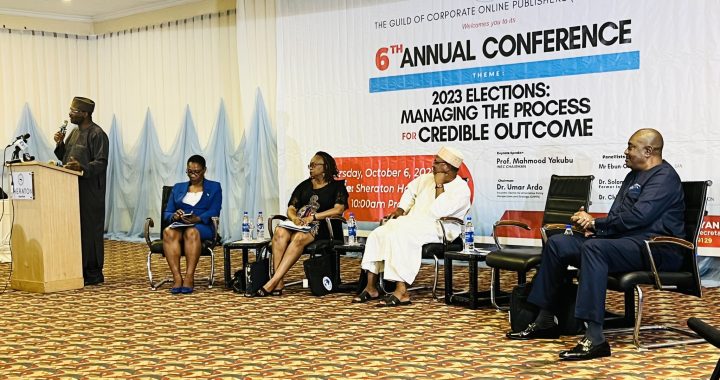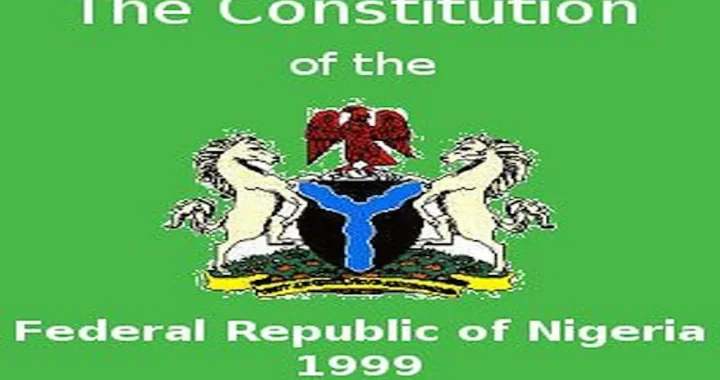MANAGING PUBLIC COMMUNICATIONS, BUILDING TRUST
8 min read
JOSSY NKWOCHA, PhD, KSC, FNIPR
BY DR JOSSY NKWOCHA, FNIPR, KSC
Being keynote paper delivered at the STRATEGIC LEADERSHIP LECTURE, to mark the 31ST Lagos Public Relations Week held at the Nigerian Institute of International Affairs (NIIA), Lagos on Thursday, 1st July 2021.
PROTOCOLS
INTRODUCTION:
I would like to deploy my academic background and professional experiences in journalism and Public Relations practices to interrogate this topic.
My 18 years of media practice will come in handy.
In the public sector, I was Senior Stakeholders’ Advisor working under Adam Smith International Communications, UK, for Nigeria’s Bureau of Public Enterprises (BPE), Abuja. We deployed scientific public communications to convince Nigerians on the socio-economic imperatives of privatization and build the trust and confidence of investors in the privatization process.
In the past 14+ years, I have been at the driving seat of team members, using public communications to build Trust and win the goodwill of various critical stakeholders and help build and sustain a solid unassailable reputation for our company.
Mr Chairman, Ladies and gentlemen, let’s take the two concepts of Public Communications and Building Trust, one after another as we cruise along.
MANAGING PUBLIC COMMUNICATIONS
Permit me to trace a brief history of Public Communications.
● In 1906, Mr Ivy Ledbetter Lee, regarded as the first Public Relations practitioner in the United States of America, utilized effective Public Communications techniques to restore peace and good image to the US Coal industry, which was experiencing turmoil as a result of shattering strikes.
● In 1926, Sir Stephen Tallents, the first PR practitioner in the United Kingdom deployed effective Public Communications tools “to bring Empire Marketing Board alive in the minds of the people of Britain.”
● In 1940, the Colonial administration in Nigeria used effective Public Communications strategies “to counter Adolf Hitler’s formidable propaganda and to establish a steady flow of information to Nigerians.
● In 1949, the then PR Manager of UAC-Nigeria, Mr Charles Newman also deployed effective Public Communications to “explain the company’s activities and policies to the people of Nigeria”.
“Public communications” is a function of Public Relations, which is a chattered profession by Law, and regulated by the Nigerian Institute of Public Relations (NIPR) Decree 16 of 1990 (now an Act of the National Assembly). In practice, public communications entail providing information for the public interest that is factual, transparent and separate from political communication or propaganda.
The Honourable Minister of Information at the Federal level and the Honourable Commissioners of Information at the State level are all practising public communications and are supposed to be accredited members of NIPR.
The same goes for Special Advisers or Special assistants on Media and Publicity, speechwriters, press secretaries, among others – all those who regularly dish out information on behalf of their principles for public consumption. They are supposed to abide by the Code of Ethics and Professional Conduct of NIPR, so empowered by Law to ensure that all practitioners practice according to Law and Ethics.
It is so unfortunate that Public communications have been misconceived as mere propaganda machines or applications of the “Attack the opponent” syndrome.
Many appointees to these offices, most of whom are practising journalists and so-called social media influencers, do not belong to NIPR and do not abide by any professional rules and regulations (Ethics); and therefore see their jobs mainly as those of “attack dogs,” agents of misinformation and disinformation, especially the Social Media warriors.
Let’s look at the functions of Public communications.
FUNCTIONS OF PUBLIC COMMUNICATIONS
From the narrative above about the history of Public communications, we can deduce some of the functions of this all-important PR function, namely:
- To restore peace and good image to an Organisation or government experiencing turmoil.
- To bring a sinking Organisation or government alive in the minds of the people.
- To counter the formidable propaganda of opposition elements and to establish a steady flow of credible information to the people.
- To explain a company’s or government’s activities, projects and policies to the people.
- To promptly and effectively counteract misinformation and disinformation to secure support for public policy, such as vaccination for Coronavirus, etc.
- It should be able to provide citizens with truthful and accurate information.
- To counsel our principals professionally to do the right things at the right time.
- Deploying PR techniques to build bridges of understanding and friendship for the principal or Organisation or government.
- Deploying he psychology of communication to change behavior: convert hostility to sympathy, prejudice to acceptance, apathy to interest and ignorance to knowledge.
- To help their principles to win the goodwill, support and cooperation of critical stakeholders such as opposition elements, government regulators, host communities, critical NGOs, opinion leaders, international agencies, the mass media – both mainstream and social media, etc.
Let me add that in our country today, poor or inappropriate deployment of Public Communications can aggravate ethnic tension, drums of war, hate speech, ethnic profiling, dangerous inuendoes, etc. On the other hand, Public communications can also be used appropriately and altruistically to douse tension, create atmosphere of peace, harmony, brotherliness. It is a critical element of effective crisis management in both the public and private sector
This is the power of public communications!
“Public communications” is usually official communication from designated officials of government, companies and high profile private citizens and can be expressed through: - Public speaking
- Speech writing
- Media interviews
- Press statements
- Press Releases
- Documentary
- Syndicated articles
- Communiques
- Social Media posts
THE CONCEPT OF BUILDING TRUST
Building Trust is one of the key pillars of Reputation Management namely Trust, Integrity and Character. Integrity and character build Trust. Trust is a psychological, mental attitude toward a proposition that someone is dependable, trustworthy and reliable.
Trust is a powerful force that builds loyalty, increases credibility and supports effective communications. It gives you the benefit of the doubt in situations where you want to be heard, understood and believed. Trust often results from consistency.
How to communicate truthfully, sincerely and honestly is a challenge for some business organisations and business leaders; and most especially in political communication, and among political leaders.
These days that many stakeholders and critical publics are getting increasingly cynical, building trust is very important. Trust is something that must be earned. No one should take Trust for granted. Even in personal relationships, building trust is very imperative. A business leader’s greatest battle today is to win the trust of stakeholders.
In the book, The Corporate Communications Bible, the author interviewed Mr Chuck Rossie who had trained over four thousand US CEOs on how Communications enhance business growth and survival, and one of the questions went thus:
Author: “How does a business prepare for a crisis?”
CR: “The first way is to build a climate of Trust, give-and-take communication, a reputation for fair dealing and caring about people over time”.
This advice can be replicated for even a government leader and for managers of public communications.
BUILDING TRUST IN PUBLIC COMMUNICATIONS
The following recommendations are some of the ways of building Trust in public communications to achieve the objectives of communications:
- Be true to your word and follow through with actions. The point of building trust is for others to believe what you say. Being truthful and honest is the building block of Trust.
- Counteract or debunk misinformation and disinformation of opposition elements with facts and figures.
- Be there 24/7 to answer enquiries, refute allegations and promptly correct any misleading information put in the public space.
- Research your subject thoroughly before communicating same to the public.
- Where you have made mistakes or given wrong information to the public, correct it immediately and apologize.
- Communicating effectively and strategically helps to build trust among your publics because it convinces them that you know what you are doing.
- Building trust is a daily commitment. Remind yourself that it takes time to build and earn trust.
- Take time to think through an issue before making decisions. Don’t communicate in a hurry.
- As the Scriptures say, let public communications be seasoned with salt and friendship rather than being laced with hate campaign, ethnic profiling and anger.
- Address the fears and concerns of the citizens or various stakeholders.
A CASE STUDY OF POOR PUBLIC COMMUNICATIONS
The global spread of Coronavirus (COVID-19) has been accompanied by a wave of disinformation that is undermining policy responses and amplifying distrust and concern among citizens.
The official dissemination of information during the Coronavirus (COVID-19) pandemic could be regarded as very poor public communication that eroded trust instead of building trust. Although the Virus was novel and not much was known about it, the authorities failed to build Trust in the information they dished out.
The gamut of information released to the public was contradictory, inconsistent, unreliable, not credible, not properly researched, not coming from one credible source, among others.
This created disbelief in the minds of millions of people. And it birthed a scary regime of all forms of misinformation, disinformation and misleading information about the virus, which came to be known as the concept of “infodemics”. The majority of people didn’t know what to believe anymore. This created panic, cynicism, fear and deaths among the world population.
CONCLUSION / RECOMMENDATIONS
Mr Chairman Sir, as I conclude this paper, let me advise that those who handle public communications at our Federal and State levels can take one or two points made here. They can help to douse tension in our country and rebuild brotherhood and unity by being mindful of their speech writing and public communications.
They should adopt:
- Public opinion surveys to gauge the mood, feelings, concerns and views of citizens.
- Stakeholders’ engagement, to interface with critical publics and build dialogue and consensus.
- Strategic communication, to determine the objective of every communication and evaluate its impact.
- The “Attack” strategy should be used sparingly as the last resort. The idea of referring to every critic of government actions, and activists as “wailers” and “haters” is wrong and unprofessional.
- Managers of public communications should remove the “them” Vs “us” syndrome, which is like a declaration of enmity that Public Relations practice abhors.
- Indeed, managers of public communications should not see themselves as mere purveyors of the feelings, thoughts and idiosyncrasies of their principals. In fact, they can help their principals to listen to the cry of their people; help them to take the right decisions; help them to build bridges of friendship, understanding and goodwill; and do the right things at the right time through executive advisory and counselling, especially if they are seasoned Public Relations professionals. .
His Excellency, the Executive Governor of Lagos State; Chairman of this occasion, President of NIPR, ladies and gentlemen; let me conclude by quoting the “1978 Mexican Statement,” one of the best definitions of Public Relations, which many scholars and professionals have adopted as very germane for our time:
It says:
“Public Relations is the art and science of analysing trends, predicting their consequences, counselling the organisations’ (or Governments’) leaders, and implementing planned programme of action, which serves both the organisation (or Government) and publics’ interest.”I feel quite honoured to be invited to this STRATEGIC LEADERSHIP LECTURE, to mark the 31ST Lagos Public Relations week. I am Omo-EKO and I proudly belong to this flagship chapter of NIPR. Please accept my hearty Congratulations!
Mr Chairman, my respected co-speaker, distinguished ladies and gentlemen thank you all for listening and God bless.
JOSSY NKWOCHA, PhD, KSC, FNIPR
Reputation Management and Communications specialist
Thursday, 1st July 2021
REFERENCES
- Andy Iheme (2020), PR ToolBox: Practical Insights Into Public Relations Challenges and Solutions”
- Ikechukwu Nwosu, et al (2011), Communication for Sustainable Development: A multi-Perspective Approach
- Jossy Nkwocha (2017), Reputation Management & Branding: With Nigerian Case Studies
- Jossy Nkwocha (2009) Effective Media Relations: Issues, Strategies & Dynamics (Public Relations Management Series 1)
- Olusegun Adeniyi ((2011), Power, Politics and Death: A Front-row Account of Nigeria Under the Late President Yar”Adua
- Robert L. Dilenshneider (2000), The Corporate Communications Bible: Everything you Need to Know to Become Public Relations Expert.
![]()






Great post.
Its like you learn my mind! You appear to understand so much approximately this,
like you wrote the book in it or something. I believe that
you just can do with some p.c. to force the message house a little
bit, but other than that, that is fantastic blog. An excellent read.
I’ll definitely be back.
my web site; ασφαλεια αυτοκινητου αλιμος
Admiring the time and effort you put into your blog and detailed information you present.
It’s great to come across a blog every once in a while that isn’t the same outdated rehashed information. Wonderful read!
I’ve saved your site and I’m including your RSS feeds to my Google account.